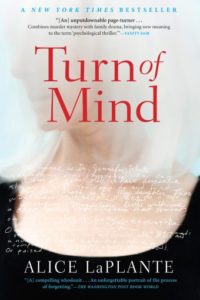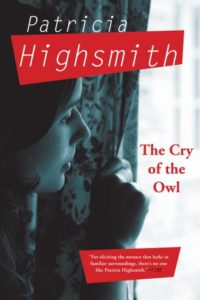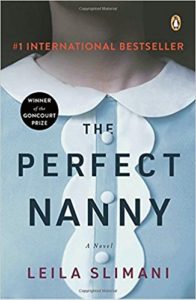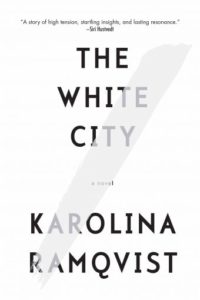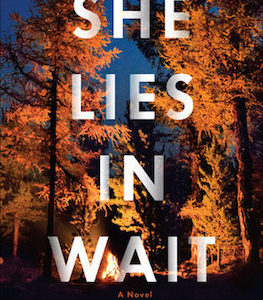Great psychological suspense novelists know there is nothing more fascinating—or terrifying—than investigating the human mind. The five novels I’ve chosen hold the reader close to the inner workings of their characters’ minds, and in so doing keep her invested, and sometimes even complicit, in the world as the characters see it, no matter how twisted their vision. While it can be easy to classify these characters as odd outsiders, rogue elements unlike you and me, what they truly reveal is how susceptible all of us are to the tides of fate and fortune. One job loss, one illness, one messy divorce or loved one’s death, could cost us what we think of as our firm grip on reality, stability, and productive contribution to society. And just as in real life, one individual’s alienation and subsequent actions can have enormous, and devastating, consequences. In each of the five novels listed below, we’re given a chance to immerse ourselves in the minds of characters steeped in fear, isolation, anger, and pain. While we’re biting our nails to see what happens next, the scariest thing about these books might just be how much we find ourselves empathizing with these deeply human creations.
Turn of Mind by Alice LaPlante
Narrated by an aging surgeon with dementia who’s been accused of murdering her life-long friend and neighbor, LaPlante’s debut novel puts us fully in the fractured interior world of her possibly guilty protagonist. Thanks to our proximity to the narrator’s wry, confused, bitter, broken, and wholly compelling voice, it feels as if we experience every humiliation, every scare, every self-doubt, along with her. She claims our sympathy in short paragraphs, sometimes as brief as a single line, that give the book a form not unlike a collection of prose poems. This format is perfect for showcasing her disorganized thoughts; it also creates space for the troubling ambiguities and literal blank spots riddling her mind. This slow-burner takes its time establishing Jennifer’s world, making the ending both shocking and inevitable.
The Cry of the Owl by Patricia Highsmith
Highsmith is a master at peeling back the skin to reveal the heart of human nature, and The Cry of the Owl, her fourth book, is a particularly potent specimen. I read the novel years ago, and though the details have faded, I’ve never forgotten how the book feels, or the dark territory it explores. Her protagonist, Robert, is depressed after his divorce and wonders about the regular daily routine his therapist has encouraged him to adopt: waking in the morning, going to work, eating three meals a day, and so on. Robert tries, but makes a crack in this socially acceptable routine by spying on a girl through the windows of her isolated house. One might expect a typical stalker narrative to unravel from there, but when the girl, Jenny, catches him watching her, the story takes a bizarre and brilliant turn. No one captures mood and internal psychological landscapes like Highsmith does, in plain language and with minimal description; it’s a kind of magic act she performs.
The Perfect Nanny by Leila Slimani
It’s impressive how boldly Slimani begins this novel, by letting us know that the climactic event is already over: “Adam is dead. Mila will be too, soon,” her eerily omniscient third-person narrator flatly informs us. Slimani goes on to build tension and suspense by backtracking all the way to the beginning of the story, when the privileged parents of Adam and Mila begin their search for a nanny by saying, “’No illegal immigrants, agreed?’” The Perfect Nanny is arguably one of the most compelling, convincing, and brilliant novels I’ve read in recent years. Anyone familiar with the real-life family tragedy on which the book is based might expect a different kind of novel—a garish, voyeuristic, and straightforward thriller, perhaps. In Slimani’s hands, though, the book becomes a deep psychological study of all involved parties, a dissection of class differences and their consequences, and a sharp examination of the complexities of modern-day parenthood.
The White City by Karolina Ramqvist
Ramqvist’s novel is quietly arresting from the start: “It was the end of winter. Under the sky that had always been there, now dark, the house still looked almost new. It had a sort of shine to it and was surrounded by nothing but silence and snow.” Inside this starkly beautiful, isolated landscape, in a once-grand, now-neglected and deeply mortgaged house, a woman is struggling to survive with her infant child after her partner, a high-rolling criminal, has died. I love everything about this book: the spare, finely honed language and atmospheric setting; the atypical focus on the criminal’s female partner, rather than the criminal himself; the realistic portrayal of motherhood’s comforts and demands; the protagonist’s piercing observations; and the escalating, realistic tension that drives the character to act as she never would have dreamed she could.
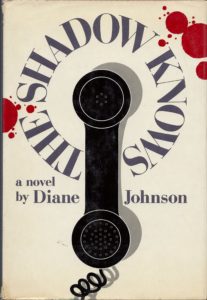
The Shadow Knows by Diane Johnson
I found a copy of Johnson’s debut novel in a used bookstore, and instantly knew I had to read it. This first paperback edition, from 1982, has a black cover, with a red door floating over a woman’s shock-widened eyes. I was instantly taken in by the narrator’s voice, which is buoyant and brave, even in the midst of the campaign of terror—real or imagined, we can never be sure—to which she’s being subjected. She is recently divorced, raising four young children, and trying to complete her M.A. when someone—or so she believes—begins tormenting her with an escalating series of threatening acts. We never see the “shadow” or find out if these terrible acts were random, the work of a single stranger, or the work of the narrator herself; the novel holds us in that richly ambiguous space until the very disturbing end.


